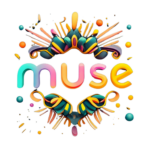Capabilities
Overview
Muse Platforms Collaborative provides business leaders with the right people, process, and tools to achieve their sales and marketing goals.
Our executives in residence along with our technology and agency partners create innovative digital experiences that communicate clearly, achieve marketing goals & look fantastic.
Technology
Muse Focuses On Creating and Using Software that differentiates you on the market today to Drive Business Decisions.
FULL STACK DEVELOPMENT
Java | Angular JS | React JS | Node JS | PHP ECOMMERCE SHOPIFY & MAGENTO ADOBE | WORDPRESS | DRUPAL PLATFORMS
LOW CODE DEVELOPMENT
Sales & marketing automation powered by FLOWIZE™
MOBILE DEVELOPMENT
Android & iOS Development
CHAT & VOICE AI DEVELOPMENT
Contactless Proprietary technology powered by RASA™
AI / MACHINE LEARNING
Enabling supply-chain forecasting powered by DATAVIVA, and Analytics powered by CONVIZIT for Marketing Intelligence
CTV/OTT DEVELOPMENT
Proprietary Broadcast Technology on Roku, Apple TV, and Chrome Cast
DATA PRACTICE
Data Collection
Facilitates the collection of known 1st party customer data
Data Unification
Unifies multi-source data with a persistent customer ID resulting in a consolidated view of the customer
Marketing Enablement
Flexible storage and seamless turnkey integrations enable multi-faceted marketing functionality
Visitor Stitching / Identity Resolution
Integrating data points across multiple customer touch-points to create a unified customer profile
QA & Performance Testing
Quality Assurance and Testing is a major component of application development. Our QA process is crucial to the ongoing viability of your app.
Predictive Algorithms & Site / App Store Optimization
Being able to see where your customers will go and being able to capture the moment with well timed offers and content are keys to customer retention.
Marketing Enablement
C#, C++, Java, Node JS, JSON, React Native, Ionic, iOS, Android, HTML5, Objective C, Laravel, Angular & Java Spring Boot.
Data Intelligence And Analytics
Monitor incoming data, identify anomalies, maintain data quality and produce customer insights
EXPERIENCE PRACTICE
MVP, Prototype & App Development
Our development teams facilitate the production right from idea to Minimum Viable Product, Prototype and complete application deployment.
UX / UI Design
How a customer interacts with the interface of your app, could have a massive impact on the overall experience. Engagement & purpose are at the heart of this process
Writing
Making sure your app development includes quality writing, catchy slogans & clear instructions are part of every plan.
Business Analysis
Understanding the business models, competition and S.W.O.T analysis help create engagement, unique positioning and drive downloads.
QA & Performance Testing
Quality Assurance and Testing is a major component of application development. Our QA process is crucial to the ongoing viability of your app.
Predictive Algorithms & Site / App Store Optimization
Being able to see where your customers will go and being able to capture the moment with well timed offers and content are keys to customer retention.
Modern Coding Languages
C#, C++, Java, Node JS, JSON, React Native, Ionic, iOS, Android, HTML5, Objective C, Laravel, Angular & Java Spring Boot.
Data Intelligence And Analytics
Monitor incoming data, identify anomalies, maintain data quality and produce customer insights

Staff Augmentation
Muse offers several key capabilities that make it a valuable approach for organizations looking to address specific staffing needs or project requirements.
Staff augmentation is a business strategy in which a company augments its in-house workforce with external professionals or temporary employees to address specific project or skill gaps.
This approach is commonly used in industries where there may be fluctuating workloads or where specialized skills are needed for a limited time.
Staff augmentation refers to the outsourcing of specific skills or roles to external professionals or service providers to meet the staffing needs of an organization temporarily. These services are commonly used by companies to access specialized skills, fill temporary gaps in their workforce, and manage fluctuating workloads.
AI Training
AI training refers to the process of training artificial intelligence models, such as neural networks, machine learning algorithms, or other AI systems, to perform specific tasks or learn from data.
The first step in AI training is to collect relevant and high-quality data that the AI model will use to learn and make predictions. The quality and diversity of the data play a crucial role in the performance of the AI model.
Raw data often needs to be preprocessed to remove noise, outliers, and irrelevant information. This step can also involve data normalization, transformation, and feature engineering to prepare the data for training.
Depending on the task, developers select an appropriate AI model or algorithm. For deep learning models, defining the architecture of the neural network is essential. This includes specifying the number of layers, the type of activation functions, and the connections between neurons.
AI training can be a resource-intensive process, requiring significant computational power, labeled data, and expertise in machine learning and AI development. It is essential for building AI applications that can perform tasks like image recognition, natural language processing, recommendation systems, autonomous driving, and more. The quality of training data and the choice of algorithms and hyperparameters can significantly impact the effectiveness of the AI model.


White-Label (For MSPs & Agencies)
White-labeling, in the context of Managed Service Providers (MSPs) and digital agencies, refers to the practice of rebranding and reselling products or services created by another company under the MSPs or agency’s brand.
Muse offers a wider range of services to their clients without having to develop these products or services in-house. The white-label products or services are typically rebranded with the MSPs, colors, and identity. This creates the appearance that the offerings are proprietary and unique to the MSP or agency.
MSPs generate revenue through the sale of white-label products or services. This revenue can come from one-time sales, subscription-based models, or ongoing support and maintenance.
Common examples of white-label solutions for MSPs and agencies include website development and design, hosting services, cloud-based applications, marketing tools, and software solutions.
